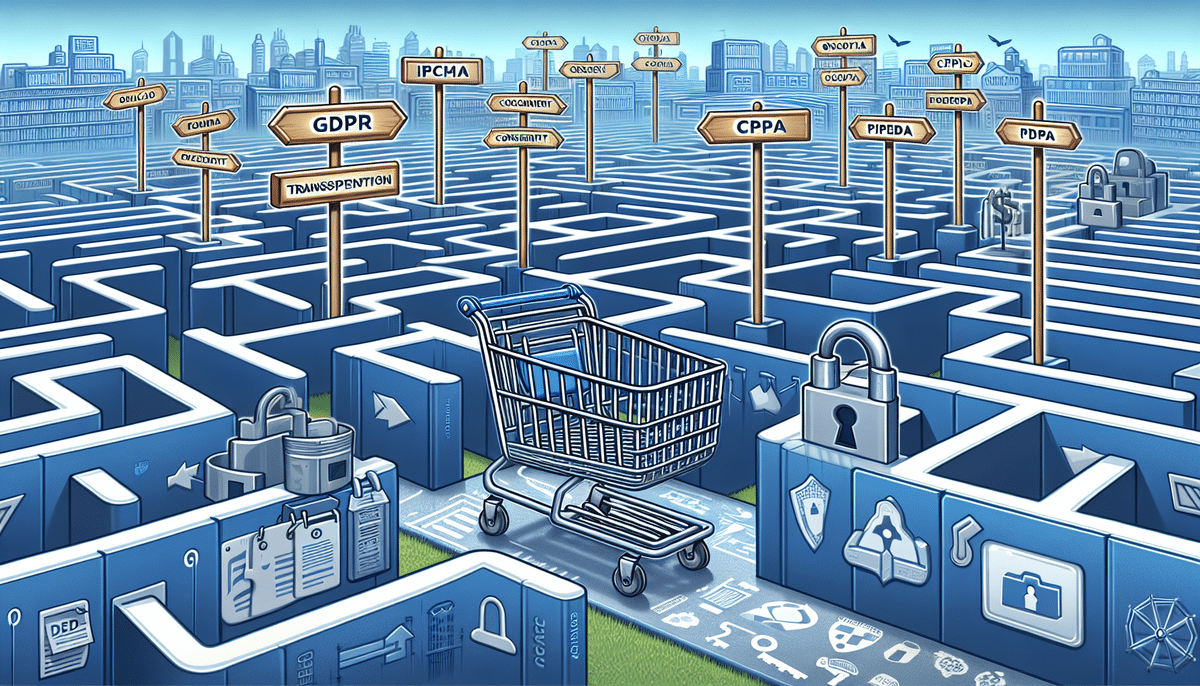Overview of Jeff Bezos' Privacy Violation Scandal
In January 2019, news broke that Amazon CEO Jeff Bezos was embroiled in a privacy violation scandal, culminating in a historic fine. This scandal not only affected Bezos personally but also ignited broader discussions on tech company accountability, data protection, and the future of online privacy. This article delves into the details of the privacy breach involving Bezos, the resulting fine, and its repercussions on Amazon's reputation and the wider technology sector.
Details of the Privacy Violation and Investigation
The core of the Bezos privacy scandal involved reports that the National Enquirer obtained private text messages between Bezos and his girlfriend, Lauren Sanchez. Allegedly, the Enquirer's then-owner, American Media Inc. (AMI), paid Sanchez's brother for these intimate messages to embarrass Bezos, who owns The Washington Post. This move was seen as an attempt to pressure Bezos into ceasing his investigations into the Enquirer's political biases.
The scandal attracted federal attention, with the FBI and the Department of Justice investigating potential federal crimes such as blackmail. Amazon's internal security team determined that Bezos' phone had been hacked, potentially by a foreign government, complicating the legal landscape. Ultimately, AMI and federal prosecutors reached a plea deal in which AMI admitted to making the unauthorized payments and agreed to cooperate with broader investigations, sparing AMI from severe charges.
Impact on Amazon's Reputation and the Tech Industry
The privacy scandal placed Amazon under increased scrutiny regarding its data privacy practices. As a company whose business model relies heavily on data collection and utilization, questions arose about Amazon's commitment to protecting personal information. This incident occurred amid a period when tech giants were already facing multiple investigations and fines related to data privacy; for instance, in 2020, Amazon faced a $700 million settlement with the Federal Trade Commission (FTC) over alleged misuse of personal data.
Despite the negative press, Amazon's financial performance remained robust. In Q1 2020, Amazon reported a 26% year-over-year revenue increase, demonstrating the company's resilience in the face of reputational challenges. However, the long-term effects on consumer trust and brand image remain subjects of ongoing concern.
Legal and Ethical Implications of the Privacy Breach
The Bezos privacy violation underscores significant legal and ethical issues surrounding data security and privacy in the digital age. Privacy breaches can lead to severe consequences including identity theft, financial fraud, and lasting reputational harm. Bezos' case highlights the necessity for stringent data protection laws and robust regulatory frameworks to hold companies accountable for data misuse.
Legal debates have intensified around the responsibilities of tech leaders in safeguarding private communications, the effectiveness of end-to-end encryption, and the extent of governmental access to personal data. Enhanced legislation, such as the California Consumer Privacy Act (CCPA), represents steps towards better consumer data protection, although critics argue that more comprehensive federal laws are required.
The Role of Social Media in the Privacy Breach
Social media played a dual role in the Bezos privacy scandal. On one hand, the Enquirer and AMI reportedly utilized social media platforms to track down and disseminate private messages, amplifying the breach's visibility. On the other hand, social media became a platform for public outrage and discussion, with widespread criticism of the Enquirer's tactics and calls for greater transparency in media practices.
Bezos' public response, including a Medium post, was rapidly circulated and debated on social platforms, demonstrating the powerful impact of social media in shaping public perception and discourse around privacy issues.
The Future of Data Protection and Online Privacy
The Bezos privacy scandal has amplified the urgency for robust data protection measures and comprehensive privacy laws. As digital data collection continues to escalate, ensuring the protection of personal information is paramount. Governments, corporations, and individuals must collaborate to establish ethical standards and enforce regulations that safeguard privacy rights.
Emerging frameworks like the EU's General Data Protection Regulation (GDPR) set international standards for data privacy, inspiring similar legislative efforts worldwide. Continued advocacy for enhanced privacy protections is essential to prevent future breaches and maintain public trust in digital platforms.
Conclusion: Lessons Learned from the Bezos Privacy Violation
Jeff Bezos' privacy scandal serves as a critical case study in the importance of data protection, corporate accountability, and ethical leadership in the technology sector. It highlights the vulnerabilities inherent in data-driven business models and the potential repercussions of privacy breaches on both individual and organizational levels.
Businesses must prioritize data security and implement proactive measures to prevent unauthorized access and misuse of personal information. Moreover, transparent communication and swift action in response to privacy incidents are vital in mitigating damage and restoring trust. The ongoing evolution of data protection laws and societal expectations will continue to shape the landscape of online privacy, emphasizing the need for continuous vigilance and adaptation.




















